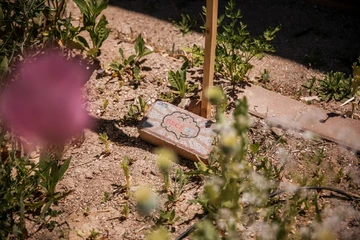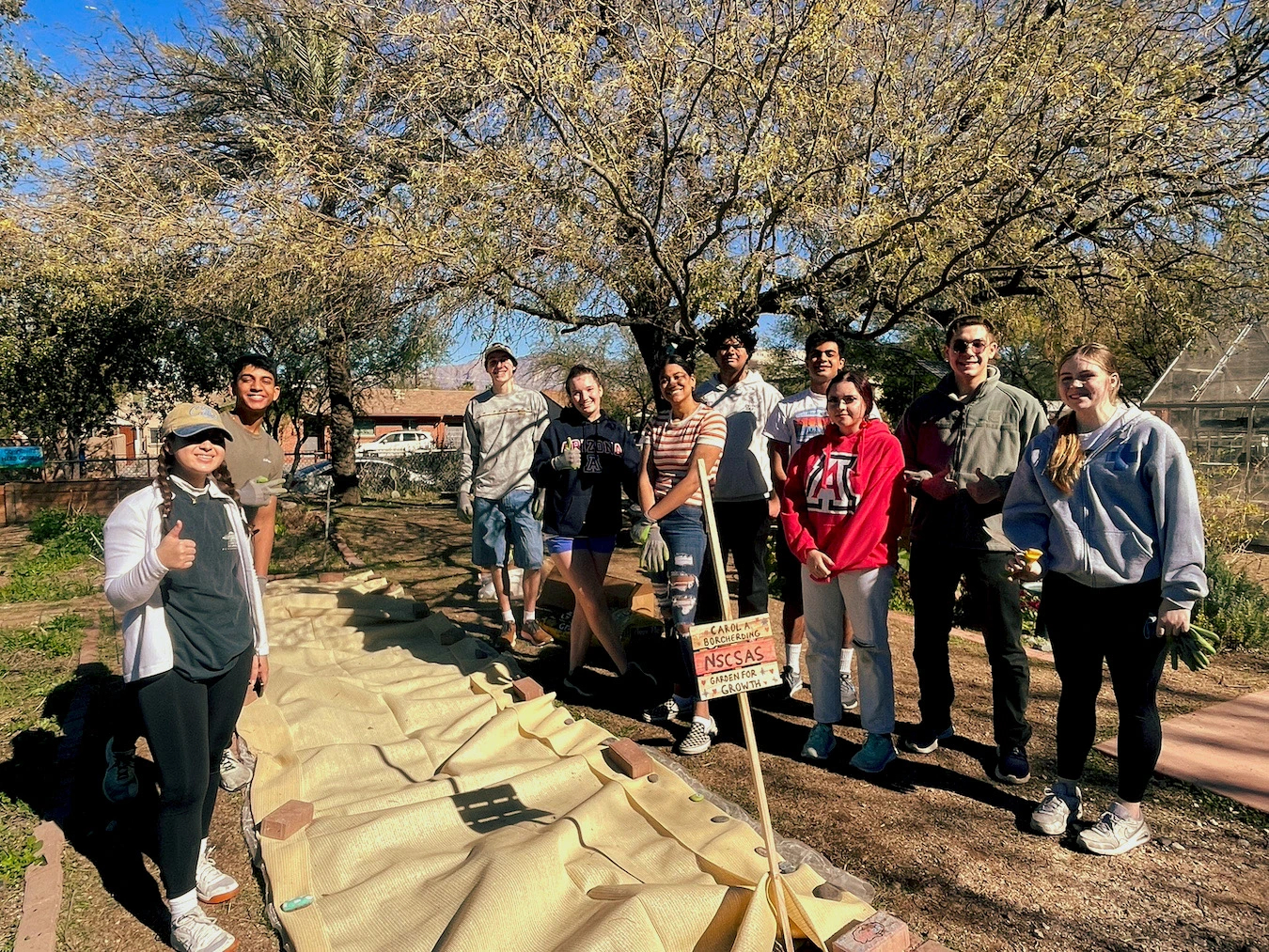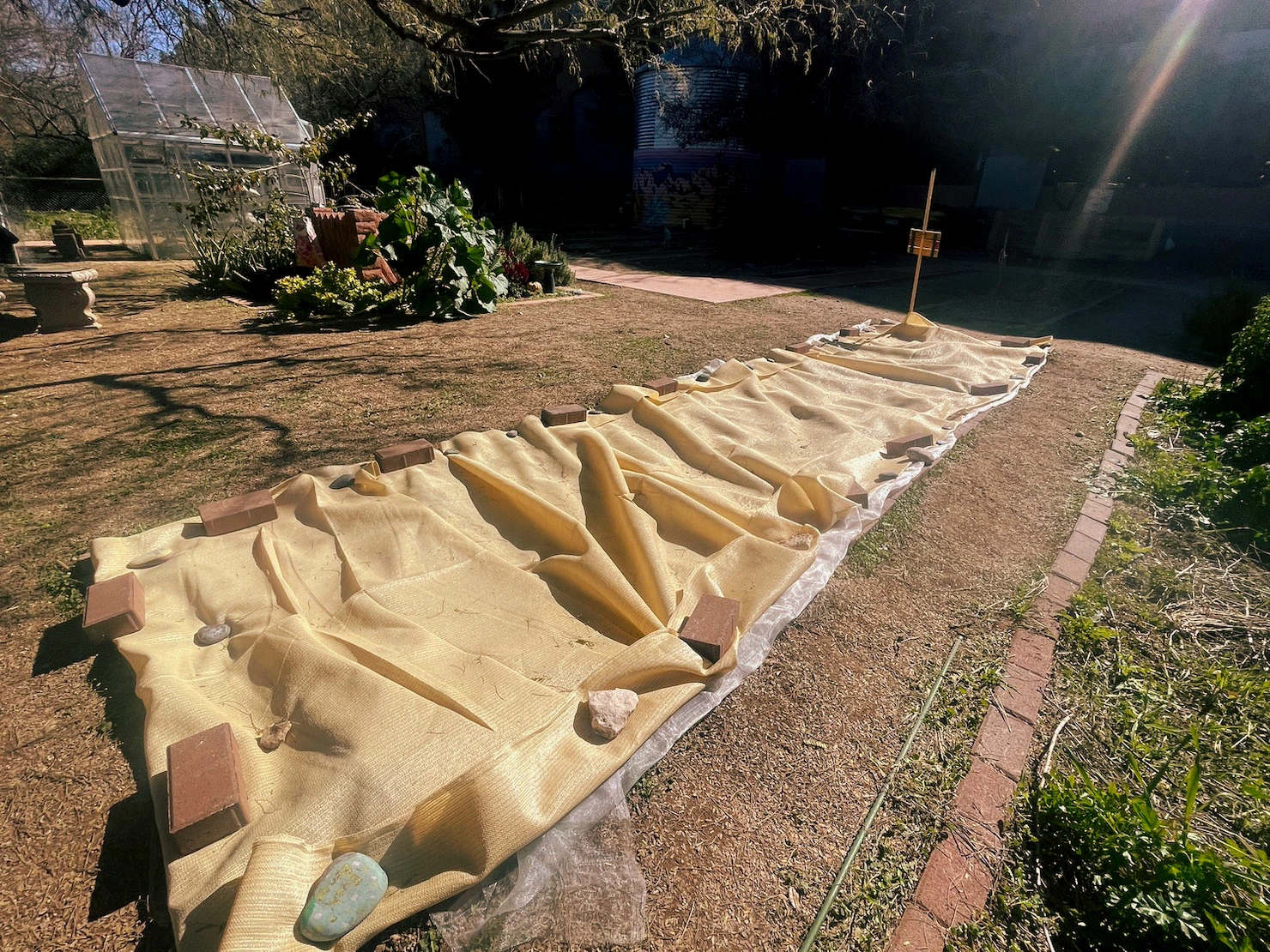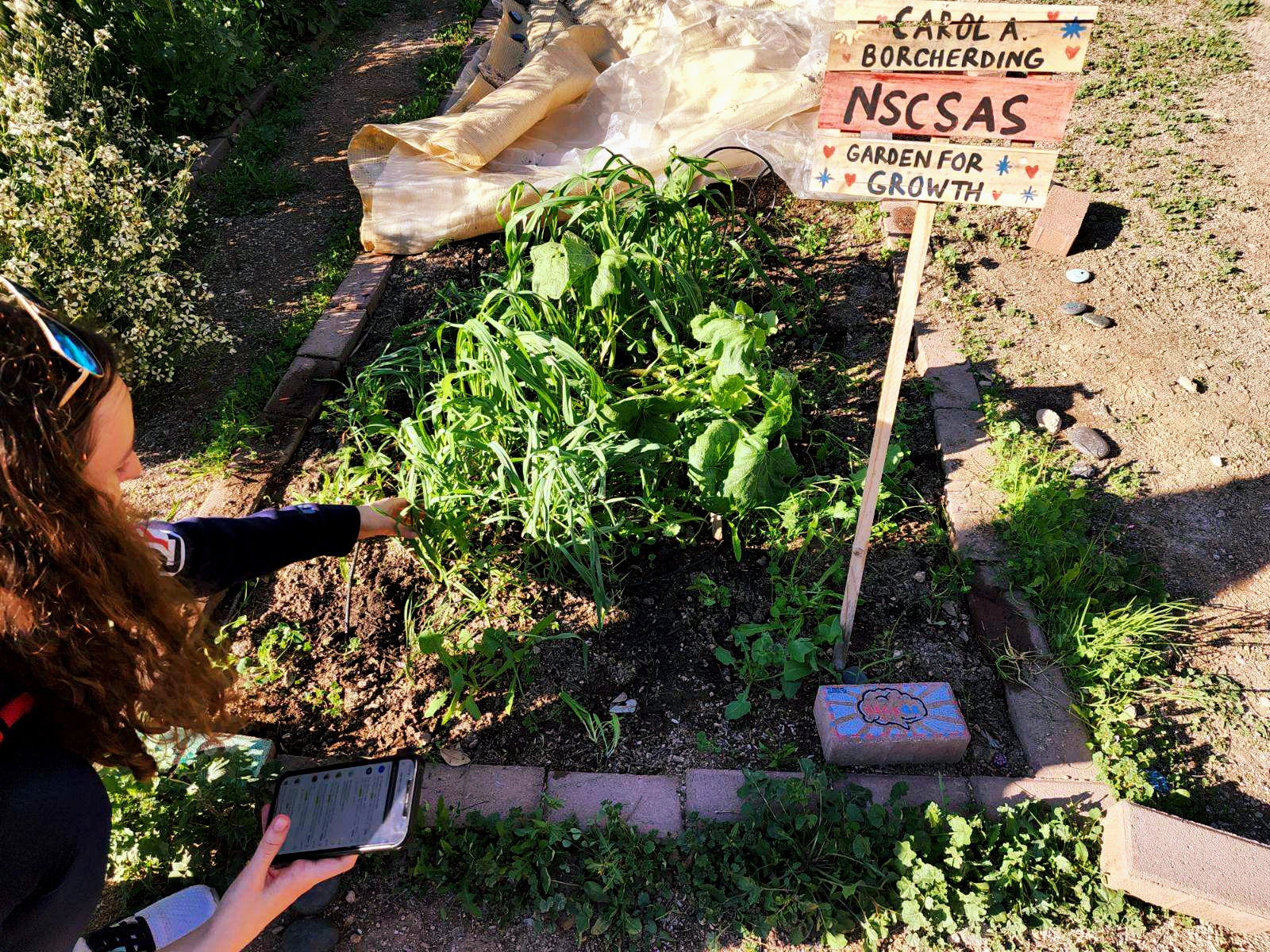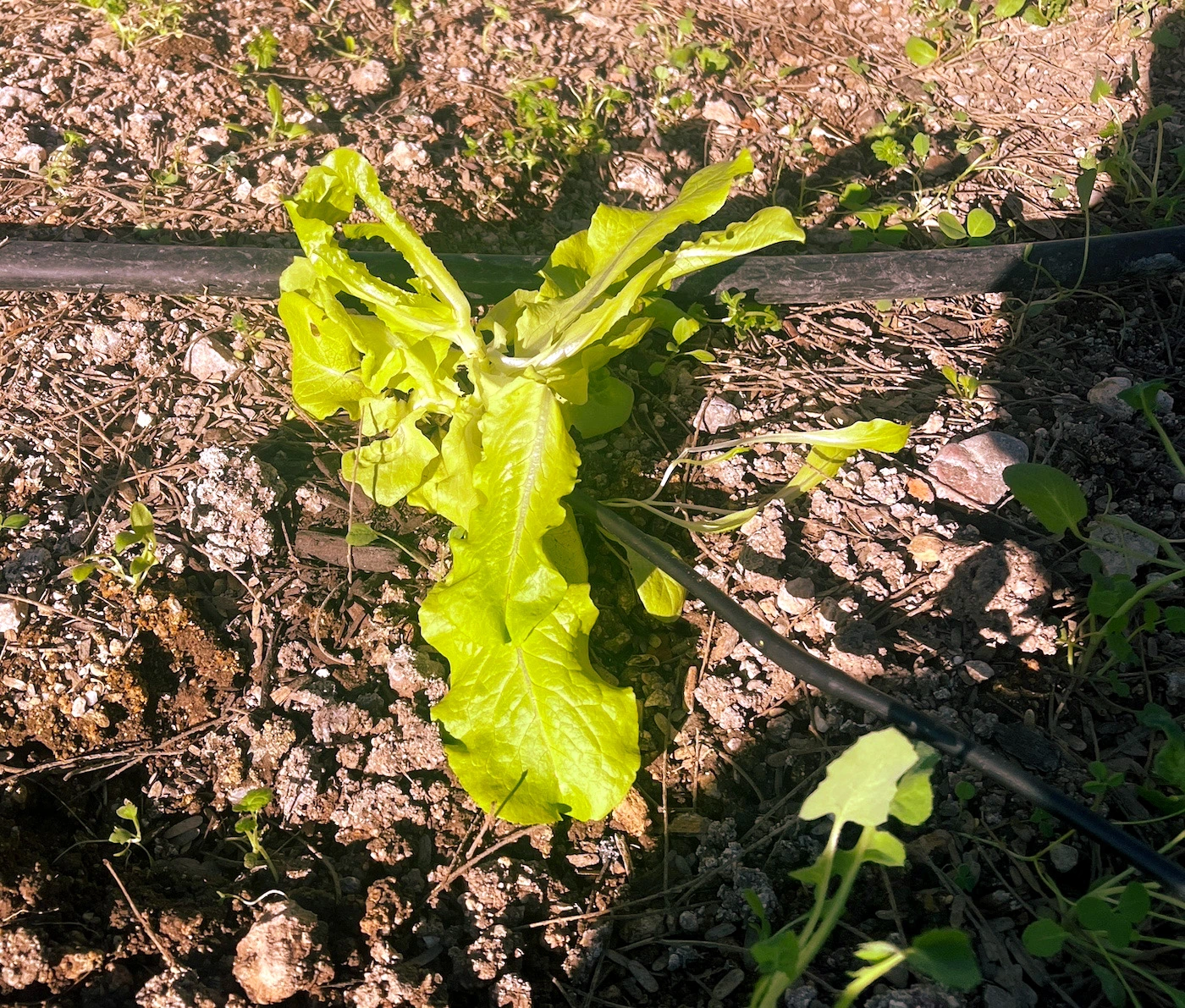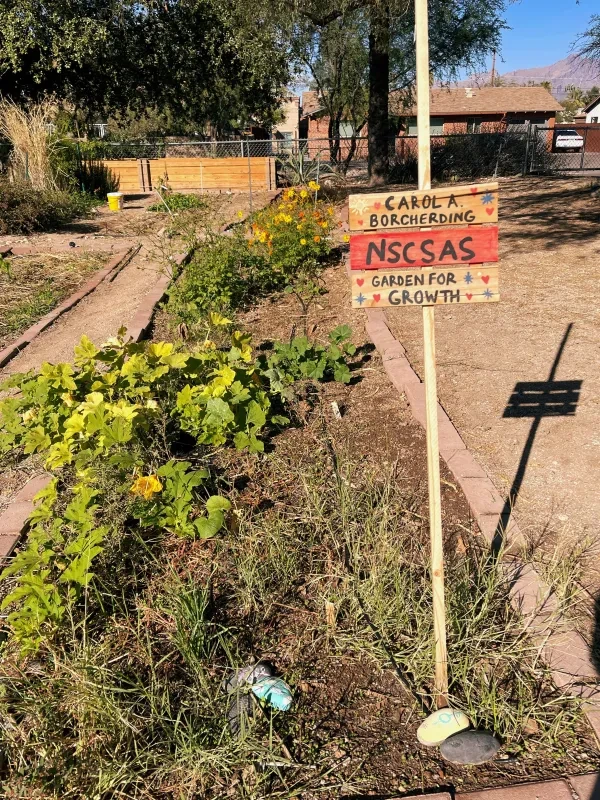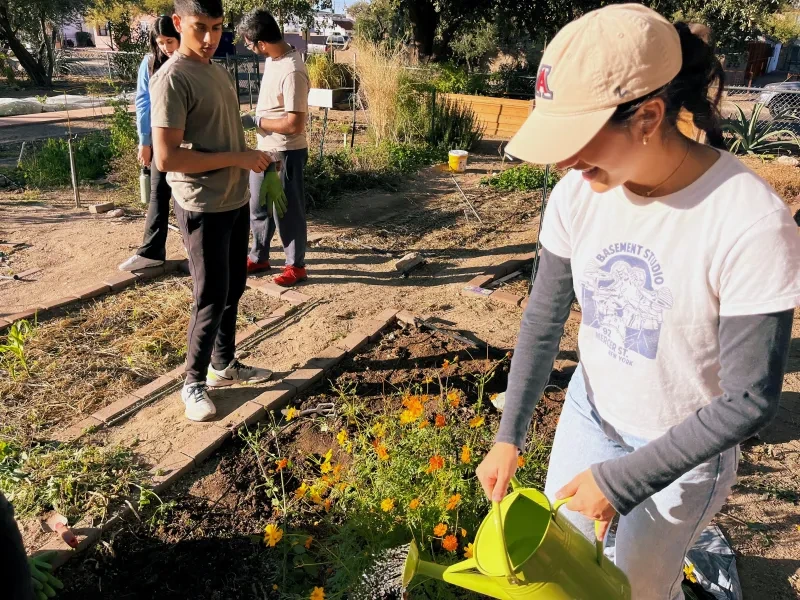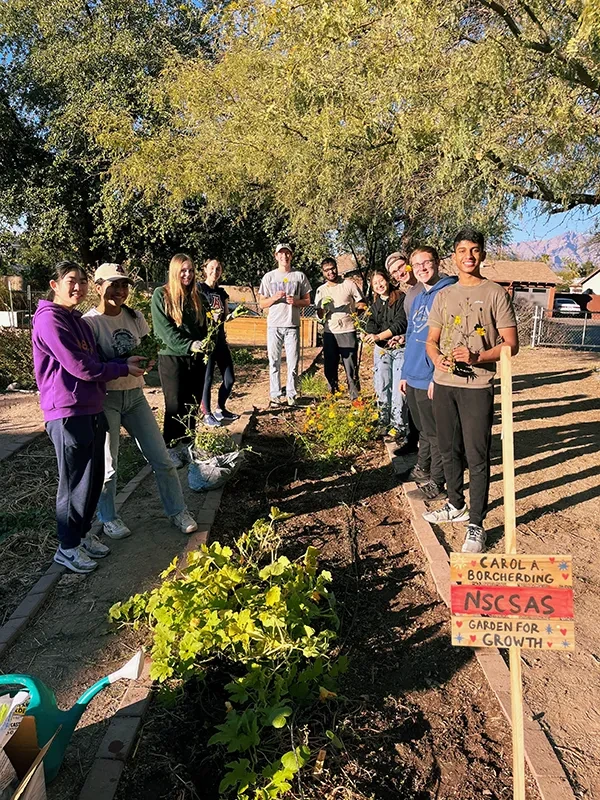NSCSAS successfully rented their garden plot and created a space for club members to come together. In the fall 2023 semester, they held two garden harvest events that had 29 attendees. They harvested 3 bunches of cilantros, 2 onions, and a whole bushel of calendula. During their January harvest, they harvested 3 more bushels of cilantro which were donated to the Campus Pantry. Together, they planted 10 more seeds that included peas, leeks, Ethiopian kale, carrots, wild arugula, bunching onions, garbanzo beans, Raab broccoli, spinach, and turnips.
In the spring 2024 semester, they held 3 events: A Gardening and Survivalist Expert Event, Keeling Community Garden Volunteering, and a Garden Cooking Event. There were 26 attendees at these events. At The Gardening and Survivalist Expert Event, Station 22 of the Tucson Fire Department shared garden plot tips and had conversations about the importance of providing ample water to a garden plot to have a successful garden plot in the desert. At the Keeling Community Garden Volunteer event, members of the NSCSAS aided in spreading mulch, organizing tools, harvesting vegetation, weeding, and building raised beds. Through this opportunity, they created a connection between the University of Arizona College of Science clubs and the local gardening community. The Garden Cooking Event allowed students to learn how to cook healthy on-campus meals through the harvested crops. In May, they harvested 16 plants: 3 bunches of onions, 5 bushels of kale, 3 heads of lettuce, and 5 Purple Morning Glory flowers.
